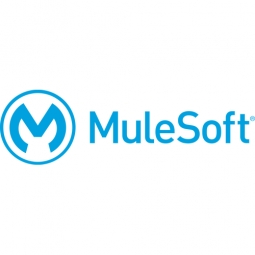Customer Company Size
Large Corporate
Region
- America
Country
- United States
Product
- Anypoint Platform
- First Best for Underwriting Management
- DCo for Policy Management
- Guidewire
- STG Billing
- SpringCM
Tech Stack
- SaaS applications
- AS/400 platform
- SQL databases
Implementation Scale
- Enterprise-wide Deployment
Impact Metrics
- Cost Savings
- Productivity Improvements
Technology Category
- Platform as a Service (PaaS) - Connectivity Platforms
- Application Infrastructure & Middleware - Data Exchange & Integration
Applicable Functions
- Sales & Marketing
- Business Operation
Use Cases
- Process Control & Optimization
- Supply Chain Visibility
Services
- System Integration
- Software Design & Engineering Services
About The Customer
Pacific Compensation Insurance Company (PacificComp) is a California-based insurance company that specializes in workers' compensation insurance. In 2010, the company decided to fundamentally change its business model from direct sales to utilizing insurance brokers. This strategic shift was in response to the demands of an increasingly competitive workers' compensation insurance marketplace in California. The company believed that partnering with insurance brokers would provide more and better opportunities for California's employers. However, this transition required a major systems overhaul and posed substantial integration challenges. PacificComp chose to invest in software as a service (SaaS) applications to increase and decrease its usage as the market dictated. However, they also had several existing systems, so it was necessary to integrate both current and new systems, whether cloud or on-premise.
The Challenge
In 2010, Pacific Compensation Insurance Company (PacificComp) decided to change its business model from direct sales to utilizing insurance brokers. This significant shift required a major systems overhaul and posed substantial integration challenges. The company needed to integrate their policy management, billing management, and other systems to support its new business initiatives. The overall goal of PacificComp's business initiatives was to decrease costs and increase ease of use for both underwriters and their broker partners. This became the mandate for the architecture PacificComp's technical team was tasked to build. As much as possible PacificComp chose to invest in software as a service (SaaS) applications as these allowed the company to increase and decrease its usage as the market dictated. However, they also had several existing systems so it was necessary to integrate both current and new systems, whether cloud or on-premise.
The Solution
PacificComp chose Anypoint Platform to integrate their policy management, billing management, and other systems to support its business initiatives. The company hired Erich Leipold (evolsolutions LLC) as a contract architect to select an integration platform. They decided utilizing an enterprise service bus was the right architecture for their needs. From an architectural perspective, Pacific Comp used substantial numbers of SaaS applications. They decided the best architecture for their needs actually involved two Mule instances: a public and private instance. This provided appropriate security models for both external and internal Mule 'users'. Using Anypoint Platform, PacificComp began implementing the most critical and time-sensitive use cases required for their 2010 re-launch. First amongst these was integration between DCo, a policy management application for the AS/400 platform that managed all PacificComp policies, and STG billing, a billing application offered by MajescoMastek.
Operational Impact

Case Study missing?
Start adding your own!
Register with your work email and create a new case study profile for your business.
Related Case Studies.

Case Study
Remote Temperature Monitoring of Perishable Goods Saves Money
RMONI was facing temperature monitoring challenges in a cold chain business. A cold chain must be established and maintained to ensure goods have been properly refrigerated during every step of the process, making temperature monitoring a critical business function. Manual registration practice can be very costly, labor intensive and prone to mistakes.

Case Study
System 800xA at Indian Cement Plants
Chettinad Cement recognized that further efficiencies could be achieved in its cement manufacturing process. It looked to investing in comprehensive operational and control technologies to manage and derive productivity and energy efficiency gains from the assets on Line 2, their second plant in India.

Case Study
Airbus Soars with Wearable Technology
Building an Airbus aircraft involves complex manufacturing processes consisting of thousands of moving parts. Speed and accuracy are critical to business and competitive advantage. Improvements in both would have high impact on Airbus’ bottom line. Airbus wanted to help operators reduce the complexity of assembling cabin seats and decrease the time required to complete this task.

Case Study
Improving Production Line Efficiency with Ethernet Micro RTU Controller
Moxa was asked to provide a connectivity solution for one of the world's leading cosmetics companies. This multinational corporation, with retail presence in 130 countries, 23 global braches, and over 66,000 employees, sought to improve the efficiency of their production process by migrating from manual monitoring to an automatic productivity monitoring system. The production line was being monitored by ABB Real-TPI, a factory information system that offers data collection and analysis to improve plant efficiency. Due to software limitations, the customer needed an OPC server and a corresponding I/O solution to collect data from additional sensor devices for the Real-TPI system. The goal is to enable the factory information system to more thoroughly collect data from every corner of the production line. This will improve its ability to measure Overall Equipment Effectiveness (OEE) and translate into increased production efficiencies. System Requirements • Instant status updates while still consuming minimal bandwidth to relieve strain on limited factory networks • Interoperable with ABB Real-TPI • Small form factor appropriate for deployment where space is scarce • Remote software management and configuration to simplify operations





